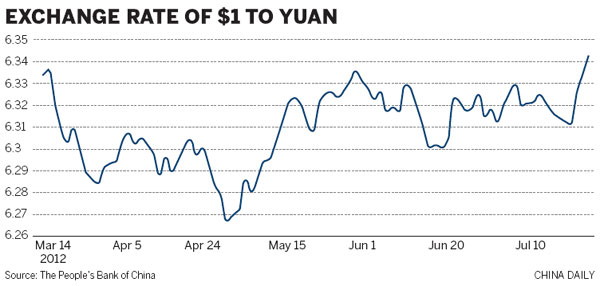Work experience a trying business
By Shi Jing in Shanghai (China Daily) Updated: 2012-07-30 09:48However, it seems that overseas internships that agencies offer most involve menial work. Yu Hua, 22, who is majoring in business administration at East China Normal University, found that to be the case while working with Land Mark Rental Management Co in Wisconsin in the United States from July to October 2011.
Together with three other male interns, Yu was working at the Carrington Pub and Grill department. His job was mainly assisting in arranging wedding or conference venues the company took responsibility for, washing dishes and doing some cleaning. He was paid the minimum wage in the US then.That is, $8.25 an hour, said Yu.
But the intern job did not come cheaply. Yu paid 2,500 yuan in an agency fee and another 15,000 yuan for the program itself to Shanghai Overseas Affairs Service Center. He was also responsible for all airfares and living expenses.
"I was the most eager to be part of the overseas internship program in the hope of giving myself a clue as to my future. I was keen to learn about American society and universities. Of course it is also good to test my English proficiency in a real language environment and appreciate the beautiful scenery at the same time," he said.
Speaking of the benefit that the internship may possibly have on his CV, Yu was fairly ambivalent, saying that it would merely be an "unexpected bonus".
Working as waiters may not be that bad. Worse things have happened.
Xu Yun, 20, a junior student majoring in journalism studies from Shanghai International Studies University, went to a place she cannot recall the name of in the west of the US for an internship in 2011. The agency she sought help from is now nowhere to be found and is not even traceable on the Internet.
"It would not surprise me at all if the agency has shut down. It's like a slaughterhouse, if I may say so," said Xu contemptuously.
Everything written in the brochure and the now defunct website seemed great. It was arranged that Xu would first of all work as a waitress and then be taken around the US. It seemed value for money to be able to play and work at the same time, she said.
However, Xu hesitated when she was informed that the charge was as high as 15,000 yuan, excluding airfares, while most other agencies only charged about 12,000 to 13,000 yuan.
When Xu asked about their reason for charging so much more, they replied that the extra money would be used to help us land jobs in the US. She thought it would be good if they could really help in that way with that amount of money and said nothing after that," Xu said.
But things were not anything like Xu had pictured in her mind. She sensed there might be something wrong when she arrived at the airport and there was no one to pick her up or arrange for her accommodation.
"I do not complain too much about all the trouble we had taken to locate the small $7 a day apartment for four people which was promised by the agency. I was most outraged by the job we were actually doing in the US - washing clothes in a remote laundry shop.
"It was nothing different from working in a sweatshop. What's more, such a job needs no help from an agency. Laundries are hiring people all the time in summer," said she angrily.
She was not the only one to be cheated. More than 200 Chinese students working in a local chocolate factory were all deceived by overseas internship agencies to work there during the same summer vacation. But they were able to walk out or go on demonstrations, being so many. The agencies were forced to pay back all the money to the students and take them traveling around the US, Xu recalled.

- Shares slump to a halt on the first trading day of new year
- Confinement center provides high-end service to new moms
- Caixin China manufacturing PMI edges down in December
- Experts turn attention to technological progress
- Market dives as investors dump shares to avoid volatility
- China's high-tech exports beat Japan and South Korea
- PwC takes China's positives into account
- NEV charging standards focus on compatibility, user safety

















